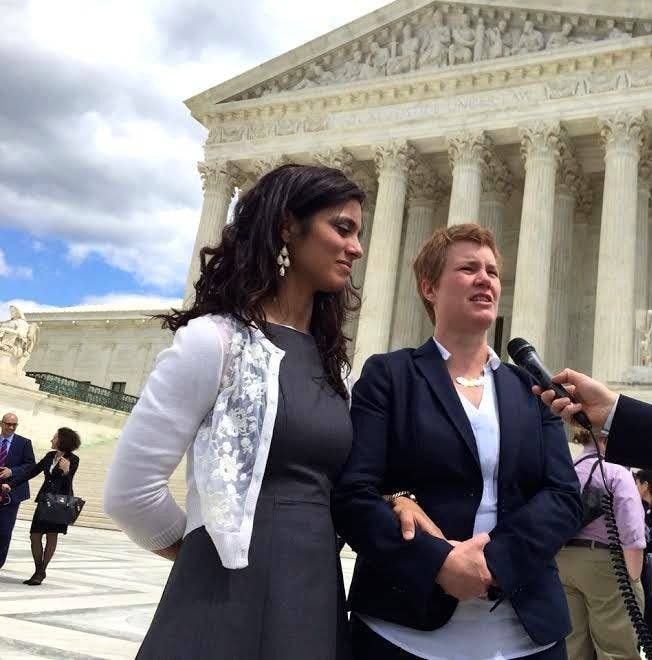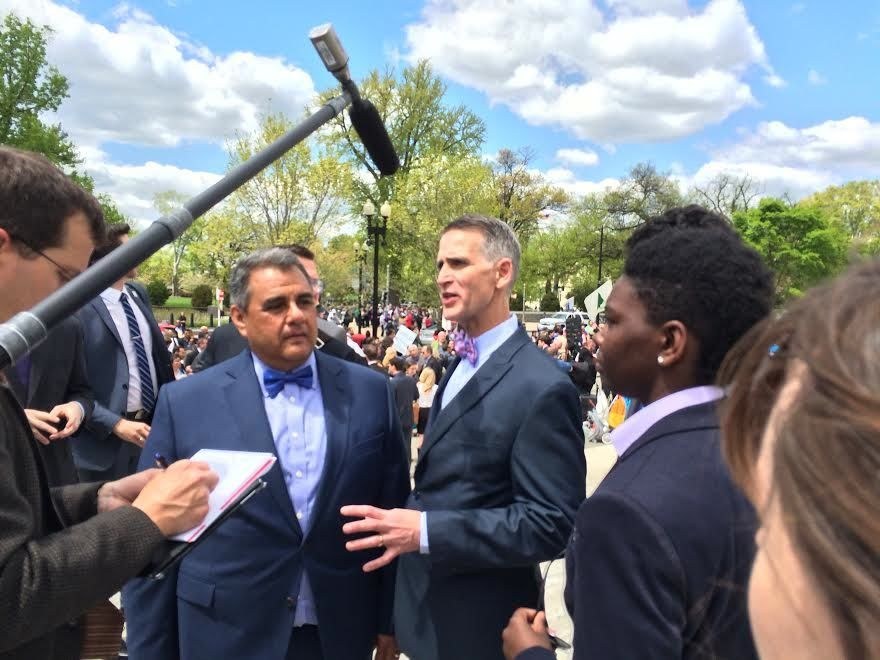
WASHINGTON — Tuesday afternoon, after their lawyers made arguments for marriage equality and marriage recognition, the same-sex couples who are the plaintiffs in the big Supreme Court cases streamed out of the building's grand front doors and marched down the steps to a cacophony coming from loudspeakers at dueling rallies on the sidewalk.
As the plaintiffs were greeted like celebrities outside the court — from shouting fans to eager reporters — their attention was already turning to the coming wait. The justices are not expected to hand down a decision in the cases until late June.
"It's going to be a long two months," Sophy Jesty told BuzzFeed News.
Jesty and Val Tanco, who were married in New York in 2011, are plaintiffs in a case seeking marriage recognition Tennessee. The justices heard their case Tuesday along with cases from couples Kentucky, Michigan, and Ohio.
Unlike a case before Supreme Court in 2013 that concerned a ban on same-sex couples' marriages in California — in which justices punted on the larger constitutional question — Jesty said that this time, "At least we know they will issue a ruling."
The plaza and sidewalk around the couple was a political circus for competing ideas about what that ruling should be. Religious groups made the most vehement case against the rights of same-sex couples to marry. One sign warned that the "Torah forbids same-sex marriage," while others — from the infamous Phelps family — read, "Fags are beasts."
Speeches being given at a stage adjacent to a news conference largely drowned out plaintiffs and lawyers trying to discuss their cases.

Mary Bonauto, who made the argument for marriage equality, said that if the justices reject her arguments, they would be "constitutionalizing second-class status for gays and lesbians ... it will invite discrimination."
Kentucky plaintiffs Gregory Bourke and Michael De Leon, who are also seeking marriage recognition, said justices had asked particularly tough questions of John Bursch, the former solicotor general of Michigan, who defended state marriage bans. Bursch argued, in part, that barring same-sex couples from marrying is necessary to promote traditional marriages between opposite-sex couples who can procreate.
"How do you defend an argument like that?" asked Bourke.

But Bourke did compliment Bursch, despite being his legal adversary, on also wearing a bow tie. "We wanted to show some solidarity," he joked before being drowned out by a chant from nearby stage and crowd.
"Homo sex is wicked!"
"Homo sex is wicked!"
"Homo sex is wicked!"

